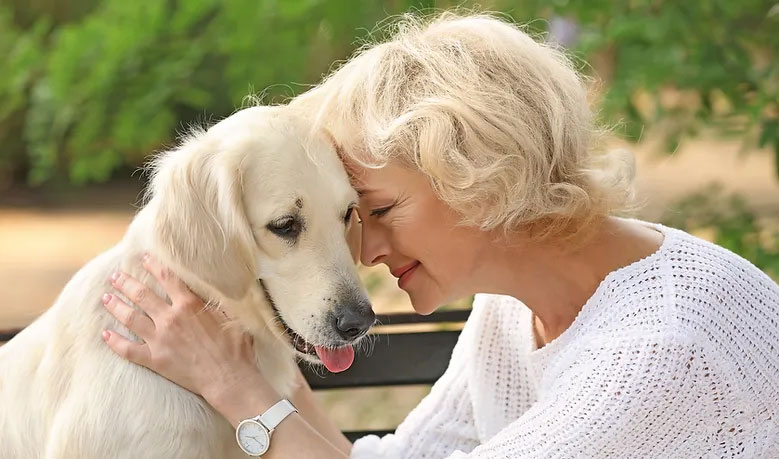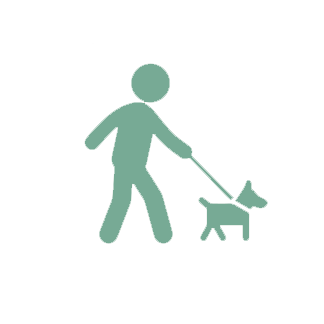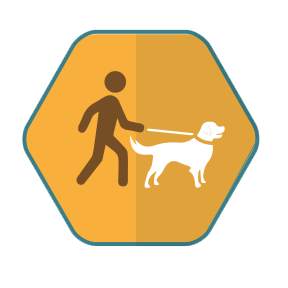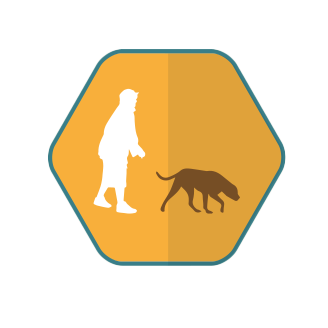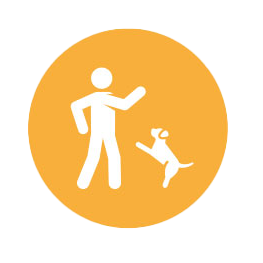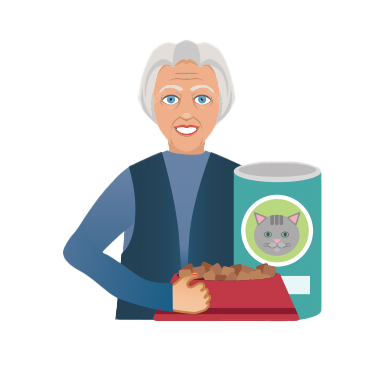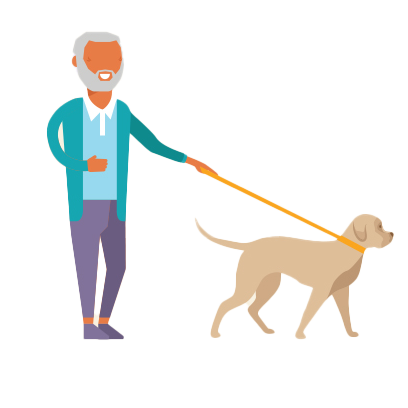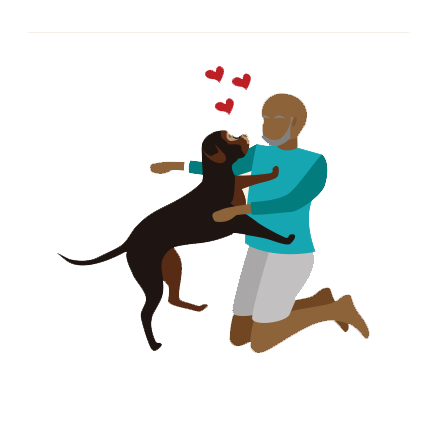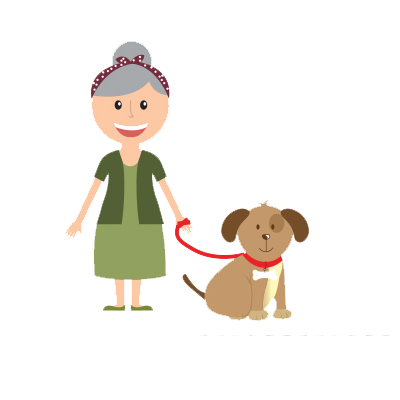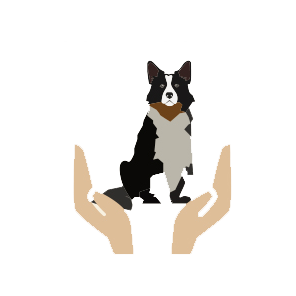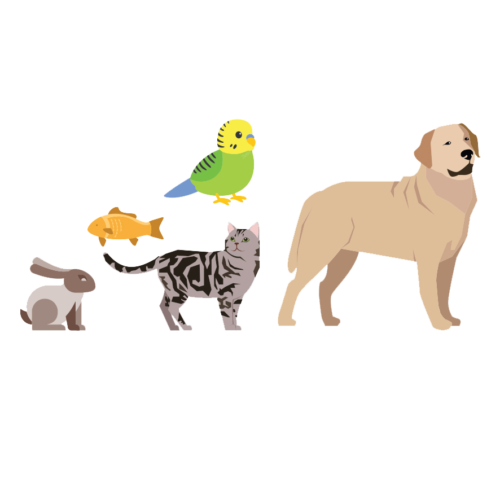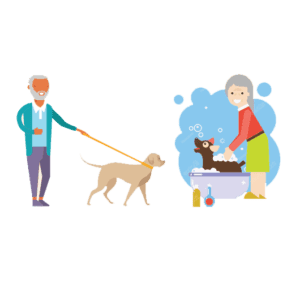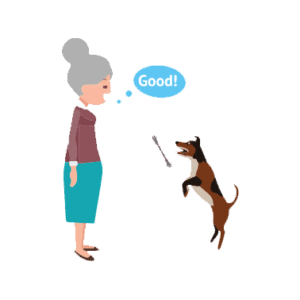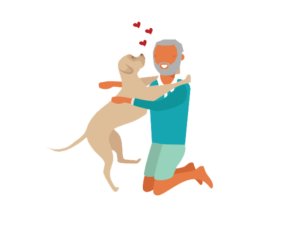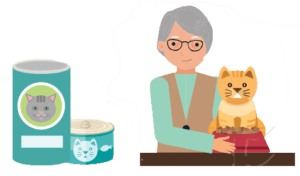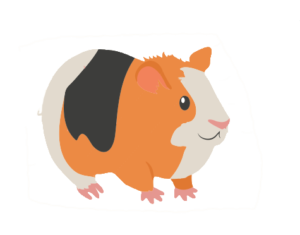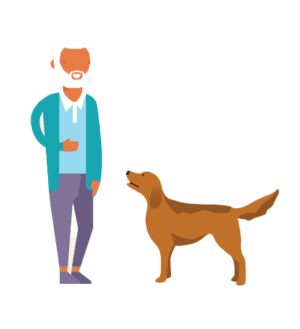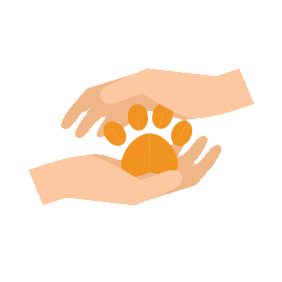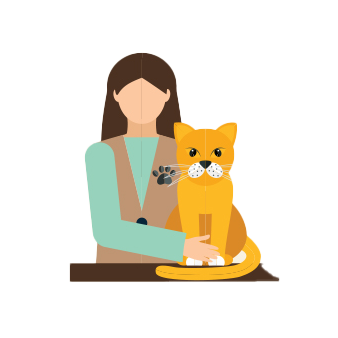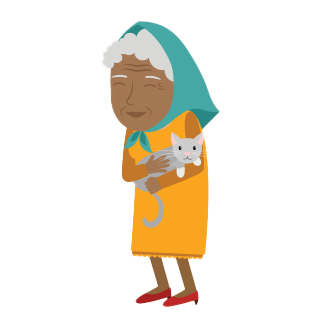Sharing our lives with pets provides physical, social, and emotional benefits. Pets encourage us to get up and move, make us laugh, provide comfort and affection, and can even help us meet new friends and get to know our neighbors. This companionship may be especially important for older adults and may even increase survival rates. For example, in one study, 94% of heart patients with pets survived heart attacks, compared to only 72% without pets.
Your Guide To The Benefits Of
Pet Ownership
For Healthy, Active Aging
Some studies suggest that older adults with pets may experience some or all of these advantages:
The Health Benefits of Pets
Maintaining health and physical mobility are important factors that determine our quality of life and ability to remain independent as we age. There is some scientific evidence to suggest that pets can help older adults stay healthy and keep moving.
SOME STUDIES SUGGEST THAT PETS MAY HELP OLDER ADULTS
The Social and Emotional Benefits of Pets
Pets provide a reason to get out of bed in the morning, a partner for walks through the neighborhood, and a topic of conversation with friends and neighbors. Opportunities to provide nurturance to others and to give and receive afection may decrease as we age, but pets are constant companions who can make us feel needed, valued, and loved. Older adult pet owners are 36% less likely to report loneliness than non-pet owners.

Pet ownership can increase social interaction and broaden social networks. Approximately 40% of pet owners report receiving social support from people they met through their pet.
Pets Can
If you or your loved one are thinking about adopting a new pet, it is important to realize that they have substantial daily requirements, and the owner or caregiver’s responsibilities will include:
The health status of owners and pets can change over time. Owners can become temporarily or permanently disabled, and pets can develop health problems that require substantial cost and daily care to manage. For everyone’s peace of mind, it is a good idea to establish a plan for how a pet will be cared for if the owner is no longer able. Identify a support system of relatives, friends, neighbors, pet sitters, dog walkers, and veterinarians that will be prepared to help out. There may also be local organizations that can assist with feeding, grooming, and temporary housing for pets.
Choosing A Pet
Dogs, cats, birds, fish, and other small furry animals, like rabbits and guinea pigs, can make great pets for older adults, but each require deferent levels of care, expense, and time to keep them healthy and happy. Housing may also help to determine the type of pet that’s best. Dogs tend to require more space and access to the outdoors, while cats and other pets are often content with an indoor-only lifestyle.
Dogs
Dogs are amazing pets. They motivate us to get up and move, and they can get us out and about in the neighborhood. They are wonderful companions, but they also require more care than other types of pets. Fulfilling a dog’s daily exercise requirements, giving medications, or even cleaning a dog’s ears may be difficult for those with some physical limitations.
Puppies’ high energy and excitement for life can lift our spirits. They also require lots of time and consistent training to become great companions. Depending on the breed, some dogs can live 15 years or more, which makes puppies a long-term commitment. If dogs are the preferred pet, but a puppy isn’t the best choice, adopting an older dog from a shelter or rescue often makes sense. Some organizations will even waive the adoption fee for older adults who adopt older pets.
We often consider our pets when deciding where we want to live. We may choose a house with a yard, so the dog has space to play. It’s important to consider not only the current living situation, but how things might change over the course of the pet’s life. Certain housing situations, such as high rises, can make access to the outdoors difficult, and some retirement communities and assisted-living facilities prohibit pets, or place limits on the size or number of pets a person can have. Smaller dogs tend to be easier to care for than larger dogs, and those with small dogs tend to have more housing options.
Dogs are social, which is one of the reasons we love them. They want to be with us. A lifestyle that involves a lot of travel can be difficult for dogs and dog owners. Daily pet care needs to be provided while the owner is away, or methods of traveling with the dog need to be found, which can be challenging. Fortunately, the availability of pet sitters along with changes in the travel industry are making this easier, but for those who want the freedom to pack up and go on a whim, it’s still something to consider.
Cats
Cats can be ideal pets for older adults. They are wonderful companions, and their care requires less space, financial expense, and physical exertion than dogs.
Kittens are fascinating and can be lots of fun, but they may also prove too much for an older adult with failing eyesight or mobility issues. A house-trained, adult cat chosen from a shelter or rescue can be a fantastic option. These cats are typically more content to entertain themselves and far more docile in nature. Unlike dogs who are happy to follow you around, cats will ask for attention and afection when they want it.
As for needs, keeping cats happy and healthy requires appropriate food, water, affection, health care, a clean litter box, a couple of toys, and a scratching post.
Feline companionship, as most cat lovers know, is intensely rewarding, takes a lot less energy than owning a dog, and is less time-consuming. Choosing a cat with a nice temperament and being able to meet its nutritional, health, and behavioral needs are the essentials for enjoying your relationship with a cat.
Older people with compromised immune systems or extremely fragile skin will need to do their best to avoid getting scratched. If a cat requires medication, it’s important to make sure that someone in the household is physically capable of providing this care.
What Other Pet Options Are There?
There’s lot to think about when choosing a pet. Things like available time, space, and finances are important to consider along with personal preferences. While dogs and cats may not be the right choice for everyone, there are many other species from which to choose. Birds, fish, and other small companion species can be fun and rewarding additions, but each requires specialized care, so it’s important to do some research before bringing a new pet home.
Some Things To Think About:
Birds
Small birds, like parakeets don’t require much space and can be fairly affectionate. Many species of birds live for a very long time (20-70 years), which is an important consideration.
Fish
Watching fish swim can be relaxing and entertaining, and learning about them can be very engaging. Although we often think of fish as being easy to care for, tanks require substantial maintenance, so it’s important to do some research before deciding if fish are the right choice.
Other Small Mammals
If they have been raised to enjoy being handled by people, small companion species like rabbits and guinea pigs can be warm and affectionate pets. Making sure the house is ‘pet proof’ is extremely important, as these types of pets will chew electrical wires. Cleaning cages and hutches can require substantial strength and dexterity.
Some Things To Consider Before Adopting A Pet For An Aging Loved One
In the United States, nearly 40% of adults between the ages of 50-67 share their lives with pets, but this declines to only 9% for those aged 68 and older. If you are considering getting a pet for your aging loved one, no matter how caring your intentions may be, it is never a good idea to choose a pet for someone else. Talk to your relatives and other family members or caregivers.
Make it something you all do together. Research the kind of pet that will work with your loved one’s personal needs, living situation, budget, and schedule. It’s also important to consider the risks of pet ownership, which include allergies, bites, scratches, falls, and certain types of infections that can be passed from animals to humans.
When Pet Ownership Isn’t Possible
Even when full-time or long-term pet ownership isn’t possible, there are still a variety of ways to enjoy the company of animals.
Sources
- Anderson, , Reid, C., & Jennings, G. (1992). Pet ownership and risk factors for cardiovascular disease. The Medical Journal of Australia, 157(5), 298-301.
- (2015). 2015-2016 APPA National Pet Owners Survey: American Pet Products Association.
- Chowdhury, K., Nelson, M. R., Jennings, G. L., Wing, L. M., & Reid, C. M. (2017). Pet ownership and survival in the elderly hypertensive population. Journal of Hypertension, 35(4), 769-775.
- Curl, L., Bibbo, J., & Johnson, R. A. (2016). Dog walking, the human-animal bond and older adults’ physical health. Gerontologist. doi:10.1093/geront/gnw051
- Dall, M., Ellis, S. L. H., Ellis, B. M., Grant, P. M., Colyer, A., Gee, N. R., Granat, M. H., & Mills, D. S. (2017). The influence of dog ownership on objective measures of free-living physical activity and sedentary behaviour in community-dwelling older adults: A longitudinal case-controlled study. BMC Public Health, 17(1), 496.
- Enders-Slegers, M-J (2000). The meaning of companion animals: Qualitative analysis of the life histories of elderly cat and dog In A. Podberscek, E. S. Paul, & J. A. Serpell (Eds.), Companion Animals & Us: Exploring the Relationships Between People & Pets (pp. 237-256). Cambridge, UK: Cambridge University Press.
- Friedmann, , Katcher, A. H., Lynch, J. J., & Thomas, S. A. (1980). Animal companions and one-year survival of patients after discharge from a coronary care unit. Public Health Reports, 95(4), 307-312.
- Friedmann, , Thomas, S. A., Son, H., Chapa, D., & McCune, S. (2013). Pet’s presence and owner’s blood pressures during the daily lives of pet owners with pre-to mild hypertension. Anthrozoös, 26(4), 535-550.
- Headey, (1999). Health benefits and health cost savings due to pets: preliminary estimates from an Australian national survey. Social Indicators
Research, 47(2), 233-243.
- Knight, , & Edwards, V. (2008). In the company of wolves: The physical, social, and psychological benefits of dog ownership. Journal of Aging and
Health, 20(4), 437-455.
- Levine, N., Allen, K., Braun, L. T., Christian, H. E., Friedmann, E., Taubert, K. A., Thomas, S. A., Wells, D. L., & Lange, R. A. (2013). Pet ownership and
cardiovascular risk: A scientific statement from the American Heart Association. Circulation, 127(23), 2353-2363.
- Rogers, , Hart, L. A., & Boltz, R. P. (1993). The role of pet dogs in casual conversations of elderly adults. The Journal of Social Psychology, 133(3), 265-277.
- Rosenkoetter, M. M. (1991). Health promotion: The influence of pets on life patterns in the home. Holistic Nursing Practice, 5(2), 42-
- Siegel, M. (1990). Stressful life events and use of physician services among the elderly: The moderating role of pet ownership. Journal of Personality and Social Psychology, 58(6), 1081-1086.
- Stanley, H., Conwell, Y., Bowen, C., & Van Orden, K. A. (2014). Pet ownership may attenuate loneliness among older adult primary care patients who live alone. Aging & Mental Health, 18(3), 394-399.
- Thorpe, J., Simonsick, E. M., Brach, J. S., Ayonayon, H., Satterfield, S., Harris, T. B., Garcia, M., & Kritchevsky, S. B. (2006). Dog ownership, walking
behavior, and maintained mobility in late life. Journal of the American Geriatrics Society, 54(9), 1419-1424.
- Turner, C., Rieger, G., & Gygax, L. (2003). Spouses and cats and their effects on human mood. Anthrozoös, 16(3), 213-228.
- Wood, J., Giles-Corti, B., Bulsara, M. K., & Bosch, D. A. (2007). More than a furry companion: The ripple effect of companion animals on neighborhood interactions and sense of community. Society and Animals, 15(1), 46-56.
- Wood, , Martin, K., Christian, H., Nathan, A., Lauritsen, C., Houghton, S., Kawachi, I., & McCune, S. (2015). The Pet Factor: Companion animals as a conduit for getting to know people, friendship formation and social support. PLOS ONE, 10(4), e0122085.

